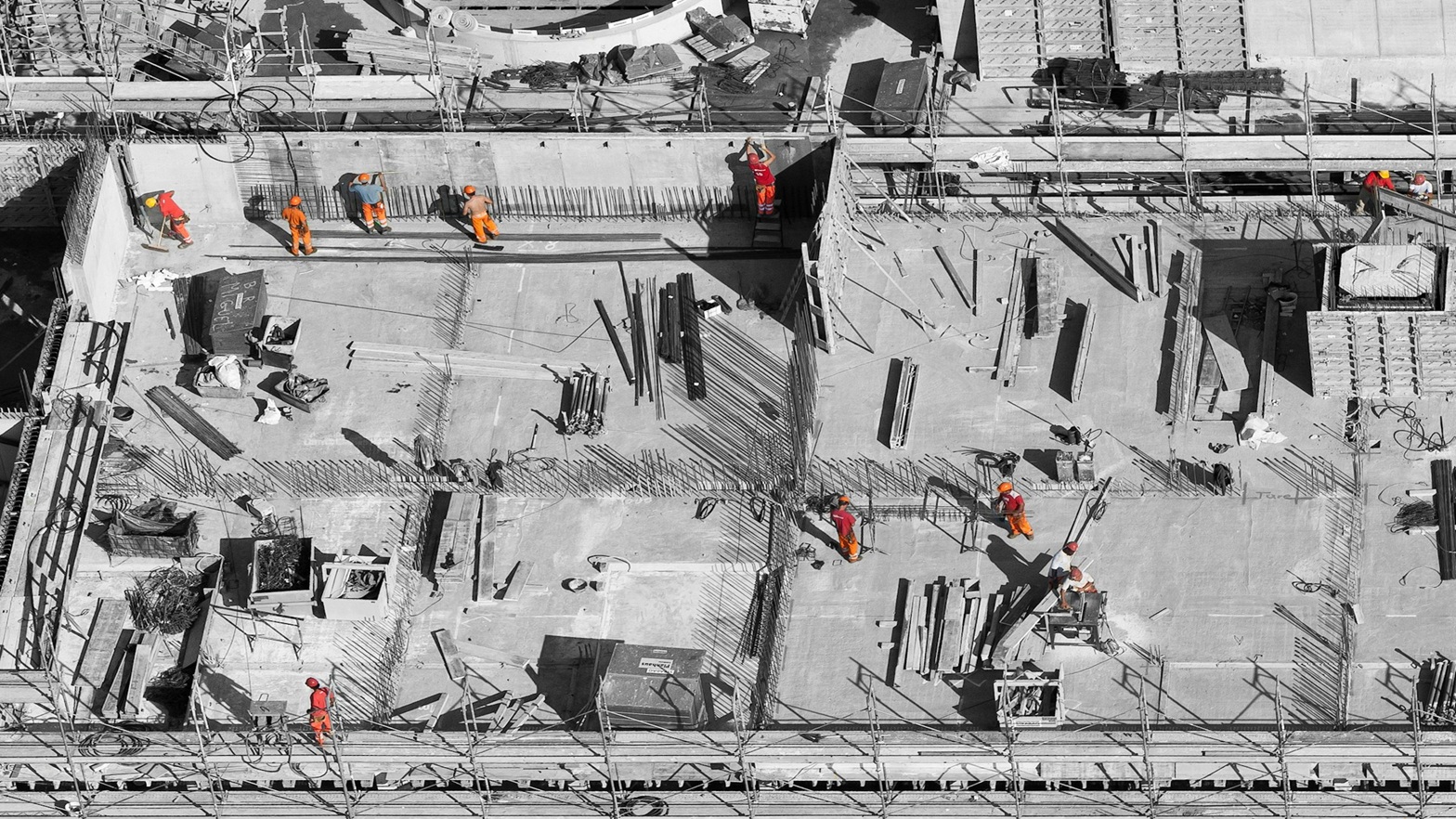Understanding the cash home sale process is the cornerstone of ensuring a smooth and successful transaction. Unlike traditional home sales that often involve lengthy financing approvals and inspections, cash sales streamline the experience, making it faster and more efficient for both buyers and sellers.
At its core, a cash home sale involves a buyer who has the liquid funds available to purchase the property outright, eliminating the need for mortgage arrangements. This means that, from the very first offer to the final closing paperwork, the process can be significantly expedited. For sellers, this can translate into quicker closings—sometimes within days—allowing them to move on with their lives without the stress of prolonged negotiations or the uncertainty that often accompanies financed purchases.
However, understanding this process requires familiarity with several key components. First, it’s essential to recognize the importance of a clear title. Buyers will want to ensure that the property is free from liens or legal issues that could complicate the sale. As a seller, obtaining a title report ahead of time can help address any potential concerns before they arise.
Next, the role of earnest money cannot be overlooked. In cash transactions, earnest money serves as a show of good faith and commitment from the buyer, reassuring the seller that the buyer is serious about the purchase. Understanding how much earnest money is typically required and when it is due can help set the stage for a transparent and professional negotiation.
Additionally, both parties should be aware of the necessary legal documentation involved in cash sales. While the absence of a lender simplifies some paperwork, it’s crucial to have a legally binding purchase agreement drafted, which outlines the terms of the sale, including the purchase price, contingencies, and closing date.
Finally, communication is key. A successful cash sale hinges on clear and open dialogue between the buyer and seller. Sellers should be prepared to answer questions and provide any documentation that may be requested, while buyers should communicate their intentions and expectations throughout the process.
By grasping these fundamental aspects of the cash home sale process, both buyers and sellers can navigate the closing with confidence, paving the way for a successful transaction and unlocking the doors to their next chapter.
Navigating Offers: Evaluating Cash Offers vs. Traditional Offers
When it comes to selling your home, understanding the nuances between cash offers and traditional offers can be pivotal in securing a successful close. Cash offers often come with the allure of simplicity and speed. With no need for financing contingencies, these deals can close much faster, allowing sellers to move on to their next chapter with minimal delay. Additionally, cash buyers typically present fewer risks; there’s no worry about a buyer’s mortgage falling through at the last minute, which can derail a sale and lead to frustration.
However, it’s essential to evaluate the specifics of each offer beyond just the dollar amount. Cash offers may be lower than traditional financed offers, which can sometimes include the buyer’s willingness to pay a premium for the property. Traditional offers might take longer to process due to the mortgage approval process, but they can also open up the possibility of competitive bidding situations, potentially driving the price up and yielding a higher return.
As you navigate these offers, consider the overall terms, including any contingencies or repair requests that might accompany a traditional offer. A cash offer may come with fewer strings attached, while a traditional offer might present you with more negotiation opportunities that could ultimately benefit you.
Moreover, think about your personal circumstances. If a quick sale is of utmost priority due to a job relocation or financial need, a cash offer could be the way to go. Conversely, if you can afford to wait for a better price, a traditional offer might prove more lucrative in the long run.
In the end, evaluating cash offers versus traditional offers is not just about the numbers—it’s about aligning the sale with your goals, preferences, and timelines. By weighing the benefits and drawbacks of each type of offer, you can make a well-informed decision that leads you to a successful closing and a brighter future ahead.
The Importance of Clear Communication with Buyers
Clear communication with buyers is the cornerstone of a successful cash home sale close. The process can be daunting for many, and as a seller, your ability to convey information transparently can build trust and facilitate a smoother transaction. It’s essential to be upfront about the property’s condition, any potential liens, and the sale process itself. When buyers feel informed, they are more likely to proceed with confidence, reducing the chances of misunderstandings or last-minute hurdles.
Utilizing various channels of communication—be it phone calls, emails, or even face-to-face meetings—ensures that you are accessible to your buyers. Take the time to answer their questions thoroughly and patiently, and don’t shy away from discussing your motivations for selling. This openness can create a rapport that reassures buyers they are not just another transaction, but valued individuals in a significant process.
Additionally, be sure to set clear expectations regarding timelines and necessary documentation. Letting buyers know what to expect at each stage of the process can alleviate anxiety and help them feel more in control. Whether it’s detailing the steps to finalize the sale or explaining how quickly they can expect the funds to be available, clarity in communication can significantly enhance their experience.
Remember, effective communication is not just about speaking; it’s equally about listening. Pay attention to buyers’ concerns and feedback, and adjust your approach as necessary. This responsiveness not only fosters goodwill but can also lead to quicker resolutions of any issues that may arise.
In summary, mastering clear communication with buyers is not just a best practice—it’s a vital strategy that can unlock the door to success in your cash home sale. By prioritizing transparency and accessibility, you create an environment where buyers feel empowered, informed, and ready to close the deal with confidence.
Conducting Due Diligence: What to Look For
Conducting due diligence is a critical step in the cash home sale process, ensuring that both buyers and sellers are fully aware of the property’s condition and value. This stage involves a meticulous examination of various factors that could influence the transaction and the future enjoyment of the property.
Start by reviewing the property’s history. Investigate past ownership, any previous renovations, and whether the property has a clear title. This information can reveal potential red flags, such as liens or unresolved legal issues that could complicate the sale. Additionally, check for any zoning restrictions that may affect your plans for the property, especially if you envision renovations or expansions down the line.
Next, it’s vital to conduct a thorough inspection of the home. This includes assessing the structural integrity, plumbing, electrical systems, and roofing. Hire a qualified inspector who can provide an unbiased report on the property’s condition, highlighting any areas that may require immediate attention or long-term investment. Understanding these aspects not only empowers you to negotiate a fairer price but also prepares you for any repairs or maintenance that may arise after the sale.
Moreover, consider researching the local market conditions. Analyze recent sales of similar properties in the area to gauge whether the asking price aligns with current market trends. For example, if you are in Knoxville, you can search “we buy houses Knoxville” to have a full list of cash home buyers in your area This knowledge can bolster your negotiation strategy and help you make informed decisions throughout the closing process.
Finally, don’t overlook the importance of understanding the neighborhood. Investigate nearby amenities, schools, and local services that could impact your lifestyle or the property’s future value. A thriving community can enhance your investment, while a declining area may pose risks.
In essence, conducting thorough due diligence is not merely a formality; it’s an essential practice that can safeguard your investment and ensure a smooth closing process. By arming yourself with comprehensive knowledge about the property and its surroundings, you position yourself for success in the cash home sale landscape.
Streamlining the Closing Process
Streamlining the closing process is a crucial step in ensuring a seamless cash home sale, and it can significantly enhance the overall experience for both sellers and buyers. A well-organized closing procedure not only expedites the transaction but also reduces stress and uncertainty, making it more likely for the deal to go through without a hitch.
First and foremost, preparation is key. Before the closing date, gather all necessary documents, including the title deed, property disclosures, and any warranties or relevant agreements. Having these documents ready and organized will save valuable time during the closing meeting and demonstrate your professionalism to the buyer.
Additionally, consider working with a reliable title company or real estate attorney who can facilitate the closing process. Their expertise can help navigate potential pitfalls, ensuring that all legal requirements are met and that the transaction adheres to state and local regulations.
Communication plays a pivotal role in streamlining the closing process. Keep the lines of communication open between all parties involved—buyers, agents, and closing professionals. Establish a clear timeline, outlining each step leading up to the closing date. Regular updates can reassure buyers and maintain momentum, preventing delays that might arise from miscommunication or lack of information.
Moreover, leverage technology to your advantage. Digital tools and platforms can simplify document sharing, e-signatures, and payment processing, making the entire closing experience more efficient. By utilizing these resources, you not only save time but also create a more modern and appealing approach to the transaction, which can be particularly attractive to tech-savvy buyers.
Finally, be prepared to address any last-minute concerns or questions that may arise. Flexibility and a willingness to accommodate the buyer’s needs can go a long way in fostering goodwill and ensuring a successful close. By streamlining the closing process with thorough preparation, clear communication, and the right resources, you’ll pave the way for a smooth transaction, unlocking the door to a successful cash home sale.
Tips for Negotiating with Cash Buyers
Negotiating with cash buyers can be a unique experience, often setting the stage for a smoother transaction. Cash buyers typically have the advantage of speed and simplicity, but that doesn’t mean you should approach negotiations lightly. Here are some essential tips to help you navigate the process effectively.
Understand Their Motivation
Before you enter negotiations, take the time to understand what drives the cash buyer. Are they looking for a quick flip, a new investment opportunity, or perhaps a forever home? Knowing their motivations can give you insight into how flexible you can be with your terms and pricing.
Highlight the Benefits of Your Property
In a competitive market, it’s vital to showcase the unique selling points of your property. Whether it’s a desirable location, recent renovations, or potential for future value, emphasize these aspects during negotiations. A well-prepared presentation can help justify your asking price and make the buyer feel they are making a smart investment.
Be Open to Offers
Cash buyers often come to the table with a strong understanding of the market and may present you with lower offers. While it’s essential to remain firm on your price, being open to negotiation can lead to a mutually beneficial agreement. Consider offering counteroffers that maintain your bottom line while still appealing to the buyer’s expectations.
Communicate Clearly and Promptly
Effective communication is key in any negotiation. Be clear about your expectations and respond promptly to offers and questions. This not only builds trust but also demonstrates your commitment to closing the deal swiftly, which is often a priority for cash buyers.
Keep Emotions in Check
Selling your home can be an emotional process, but it’s crucial to keep emotions out of the negotiation room. Approach the conversation with a level head, and remember that negotiation is a business transaction. Stay focused on your goals, and avoid getting too attached to any specific offer.
Be Prepared to Walk Away
One of your strongest negotiation tools is the ability to walk away if the terms don’t meet your needs. Set your limits ahead of time and stick to them. If a cash buyer isn’t willing to meet your minimum price or conditions, be ready to explore other options. This confidence can sometimes lead the buyer to reconsider their offer.
By implementing these negotiation tips, you can create a productive dialogue with cash buyers that not only leads to a successful sale but also enhances your reputation as a seller in the market. Remember, the key to mastering the cash home sale closely lies in understanding your buyer and maintaining a professional yet approachable demeanor throughout the process.
Avoiding Common Pitfalls in Cash Transactions
When navigating the often tumultuous waters of cash home sales, avoiding common pitfalls can mean the difference between a smooth transaction and a stressful ordeal. Cash transactions, while often quicker and less complicated than traditional financing methods, come with their own set of challenges that sellers must be aware of.
One of the most significant pitfalls is underestimating the importance of thorough due diligence. Just because a buyer is offering cash does not mean they are immune to issues that can derail a sale. Sellers should still conduct background checks on potential buyers to validate their financial capability and ensure they are serious about the purchase. A buyer who can pay in cash may seem like a surefire deal, but it’s crucial to confirm that they have the funds readily available and are not just window shopping.
Another common mistake is neglecting to set clear terms and conditions in the sales agreement. Cash transactions can move quickly, but rushing through the paperwork can lead to misunderstandings down the line. Ensure that all aspects of the sale are clearly defined, including contingencies, closing dates, and any repairs or concessions. This clarity protects both parties and can prevent disputes that might arise post-closing.
Furthermore, sellers should be wary of skipping the home inspection process, even in cash deals. While buyers may waive inspections to expedite the sale, this could leave sellers vulnerable to future claims. A pre-sale inspection not only helps identify potential issues but also gives sellers an opportunity to make repairs or adjust their asking price accordingly.
Lastly, be prepared for the emotional aspect of a cash sale. The allure of a quick close can lead sellers to overlook their own needs or leave money on the table. Take the time to evaluate offers carefully, considering not just the cash amount but also the buyer’s credibility and the overall terms of the sale.
By recognizing and avoiding these pitfalls, sellers can navigate the cash home sale process with confidence, ensuring a successful and profitable transaction that meets their needs.
Post-Sale Considerations: What Comes Next?
Once the ink is dry on the sale agreement and the keys have exchanged hands, the journey doesn’t end with the cash home sale. In fact, it marks the beginning of a new chapter that requires careful consideration and planning. Understanding the post-sale landscape is crucial for both buyers and sellers, ensuring a smooth transition and fostering long-term success.
For sellers, it’s essential to tie up loose ends. This may involve settling any outstanding utility bills, ensuring that all necessary paperwork is completed, and formally notifying your local tax authority about the change in property ownership. Additionally, take a moment to reflect on the sale process—what worked well and what could be improved for future transactions. Gathering feedback can provide valuable insights that enhance your approach in subsequent deals.
For buyers, the post-sale period is a time for organization and preparation. Begin by changing the locks and updating security measures to ensure your new home is safe and secure. Next, familiarize yourself with the neighborhood—locate essential services, such as grocery stores, schools, and medical facilities. It’s also wise to budget for any immediate repairs or renovations the property might need, as well as to create a plan for ongoing maintenance to protect your investment.
Moreover, both parties can benefit from maintaining a line of communication. Sellers should consider offering their new neighbors insight into the home and the community, which can be incredibly helpful during the transition. Meanwhile, buyers might appreciate a friendly follow-up to ensure everything is going smoothly post-sale.
Finally, remember that a successful cash home sale is not just about the transaction; it’s about the relationships built along the way. By nurturing these connections and being proactive in your post-sale responsibilities, you can lay the groundwork for future opportunities and a thriving real estate journey.





























